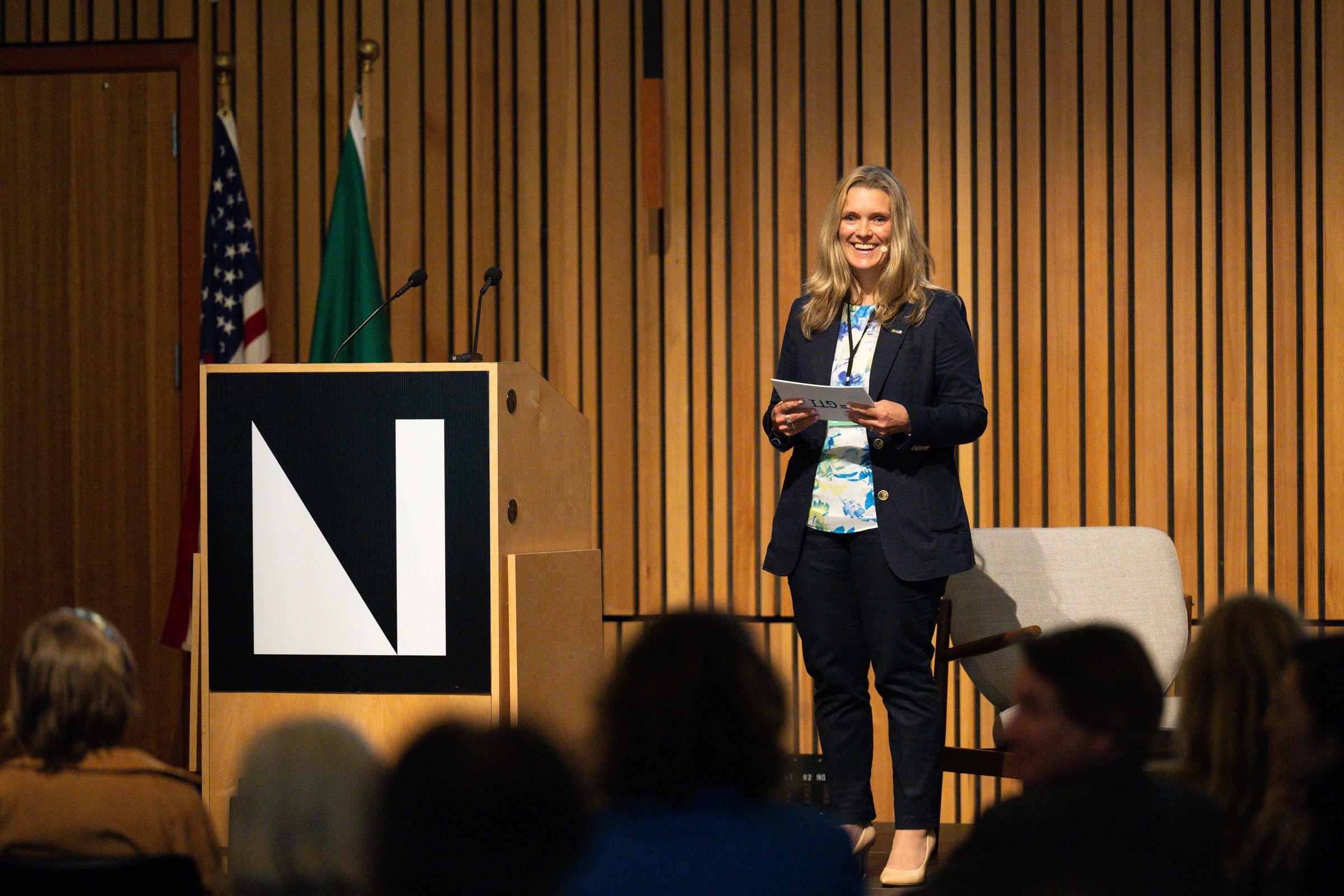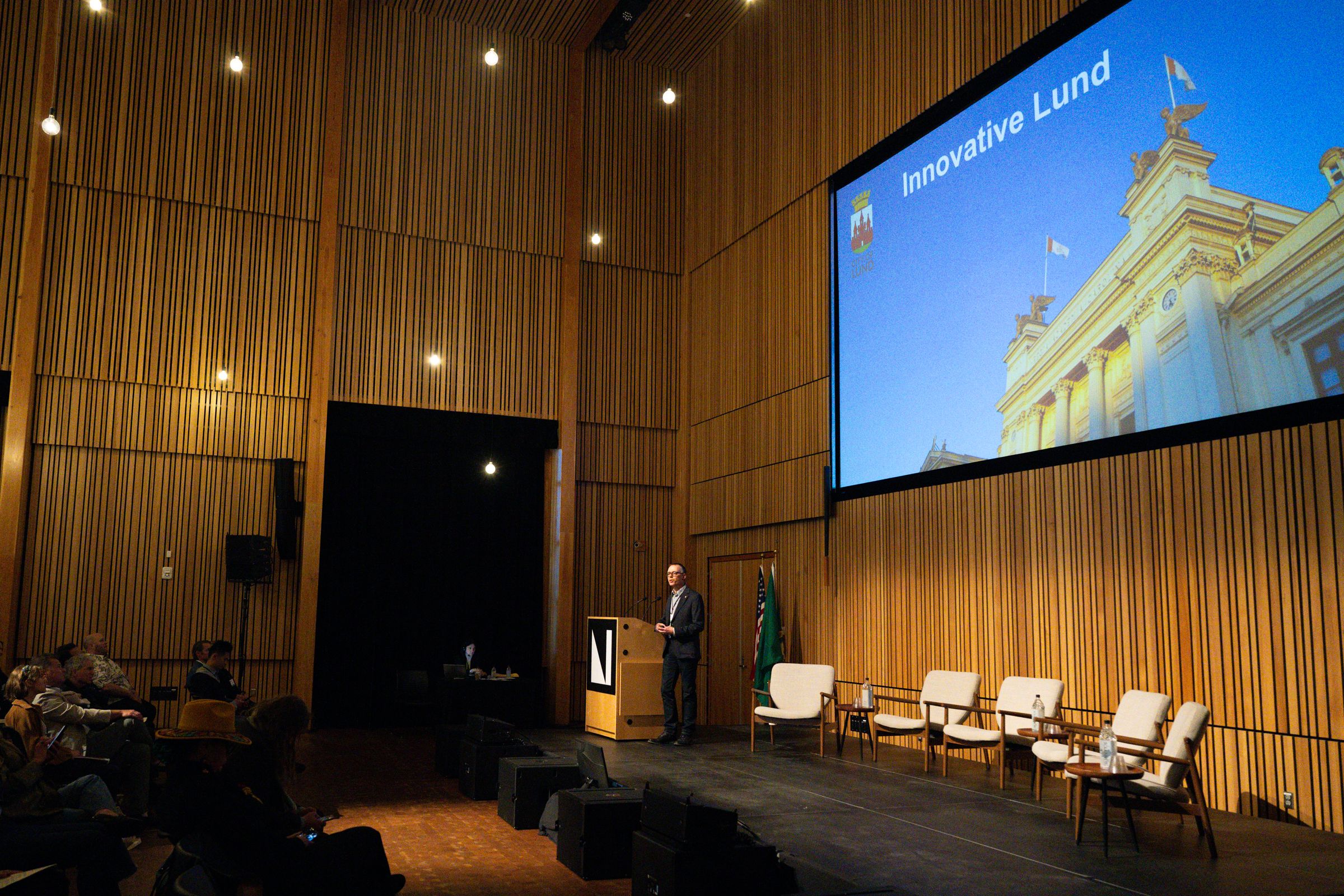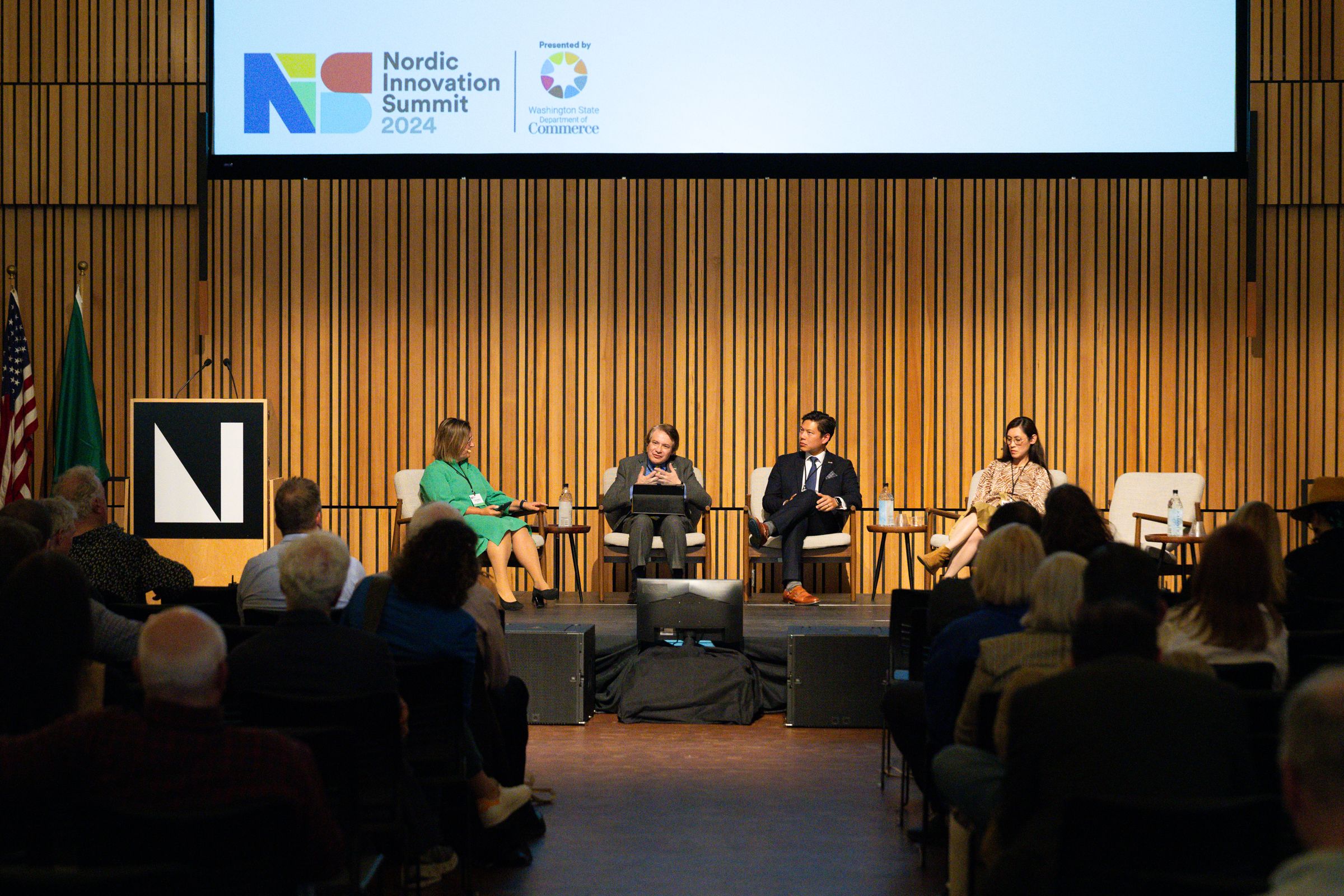Sweden-US Green Transition Initiative Joined the 2024 Nordic Innovation Summit
The Sweden-US Green Transition Initiative (GTI) joined the 2024 Nordic Innovation Summit, marking a significant step towards fostering global collaboration for climate neutrality. In partnership with Viable Cities, GTI hosted a panel on city transformation inspired by moon landings and a mission-oriented approach, drawing insights from Seattle, Stockholm, and Lund representatives. Additionally, GTI participated in discussions on academia-industry collaboration.

Keynote and Panel Highlights: Cities Inspired by Moon Landings Drawing inspiration from NASA's moon landing program, Sweden launched a national innovation program a decade ago with the bold ambition of making its major cities climate-neutral by 2030. This mission-oriented approach aims for more than zero emissions; it seeks to unite all societal levels toward achieving climate-neutral cities by 2030, ensuring a good life for all within planetary boundaries. This approach's success has garnered global attention, prompting GTI and Viable Cities to host a panel at the Nordic Innovation Summit in May 2024.
Karin Ekdahl Wästberg, Director of Innovation for the City of Stockholm, highlighted Sweden's ranking as one of the most innovative countries globally. In her keynote, she showcased Stockholm as an innovation leader, emphasizing the city's triple helix approach—collaborating with academia, industry, and the public sector with actors like Viable Cities, Digital Futures, KTH, MIT, and others. Stockholm has committed to achieving climate neutrality by 2030. Despite significant emission reductions since 1990, challenges remain, particularly in the transport sector. However, Stockholm's receipt of the European Union's Mission Label underscores its potential to reach climate neutrality, with innovative initiatives like the emission-free zone class 3 leading the way.

Lund's unique achievements, such as using excess heat from the MAX IV and ESS particle accelerators to heat the city. In 2030, solar, wind, and battery systems can be the most cost-effective energy solutions, and the low cost will drive technology disruption.** Markus Paulsson** introduced the concept of the "Internetified Energy Sharing Network," a new microgrid model enabled by recent European Union regulations, which generated significant discussion during the panel.
Jessyn Farrell, Director of Seattle's Office of Sustainability and the Environment, shared Seattle's goal of achieving climate neutrality by 2050, focusing on decarbonizing transport, buildings, and waste. Farrell highlighted the city's numerous demonstration projects and the supportive role of collaborative networks. Moderated by Linda Andrén, the Executive Director of Sweden-US Green Transition, the panel discussion emphasized the importance of continued collaboration to accelerate the green transition.

Trans-Atlantic Exchange: Enhancing Learning and Driving Innovation
GTI also participated in a panel on enhancing learning and driving innovation through Trans-Atlantic exchange, lead by Inger Gustafsson, Head of Vinnova Silicon Valley Office. This session showcased two student academia-industry exchange programs: one between Washington State University's Pullman campus and Linköping University and another involving industry partners Boeing and Saab.
Marcus Rönngren Liu, Senior Project Manager at Sweden-US Green Transition Initiative, shared insights from the collaboration between companies like Northvolt, Berkeley, Curburg, and Lund University. The collaboration aims to attract talents essential for the green transition. Industry leaders have emphasized the need for an established process to attract these talents and the attractiveness of joining an established process with the universities. In the long term, such collaborations can facilitate cultural value exchange, blending the speed and scale of the U.S. with Sweden's sustainability values and knowledge.
Åsa Wallin, Director Future Precision Health, represented Linköping University. Looking ahead, Linköping University, Washington State University, Boeing, and Saab expressed interest in furthering these collaborative efforts, highlighting the potential for significant advancements in green technology and innovation.
If you missed the Summit you can check out the session here